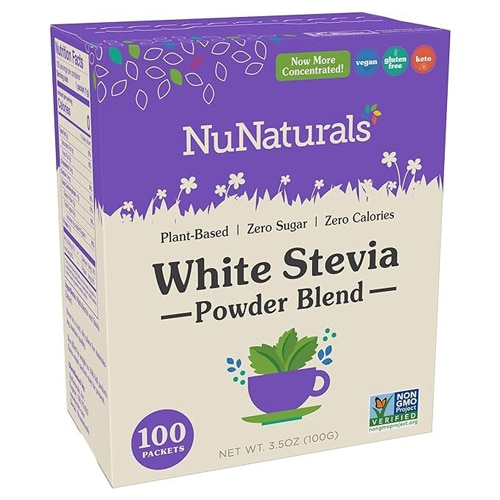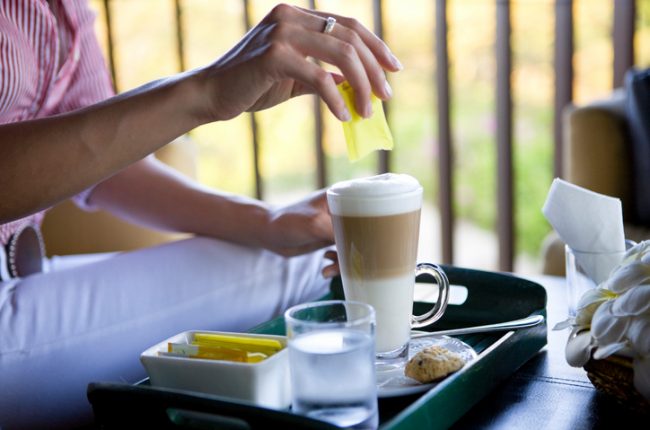Once you’ve read this story, you might be soured on the presence of artificial sweeteners in beverages, baked goods and other foods.
Several studies published this year alone have cast serious doubts on the nutritional benefits of artificial sweeteners and, in fact, have raised concerns about whether they actually can harm your health.
At every turn, however, supporters of artificial sweeteners have thrown water on the results of these studies, contending that fake sugar helps people lose weight and maintain a healthy lifestyle.
“When artificial sweeteners started gaining popularity, it seemed like they were a godsend for people who were watching their weight or had chronic health problems. Little did we know these little packets of sweetness came along with huge baggage,” says registered nurse Rebecca Lee, founder of RemediesForMe.com.
What follows is a brief rundown of three of the recent studies, along with a counterargument for each study’s findings.
Australian study
At the annual meeting in September of the European Association for the Study of Diabetes, Australian researchers presented results of a study suggesting artificial sweeteners might increase the risk of developing type 2 diabetes.
Counterargument: In a rebuttal to the Australian study, the International Sweeteners Association notes that for people with diabetics, low-calorie sweeteners “can aid in glucose control and offer broader food choices by providing the pleasure of sweet taste without raising blood glucose.”
Second Australian study
Published in August in the journal Cell Metabolism, a study led by Australia’s University of Sydney found that the combination of artificial sweeteners and a low-carb diet could significantly bump up calorie consumption.
“Although originally considered benign, a growing body of research including our own makes clear a connection between artificial sweeteners, hunger and food intake,” says lead researcher Greg Neely, associate professor of life and environmental sciences at the University of Sydney.
Counterargument: In a May news release, the International Sweeteners Association maintains that including low-calorie sweeteners in your diet is “a useful strategy that can help control caloric intake and probably also help combat cravings for sweet-tasting foods.”
Canadian study
A study published in July by the Canadian Medical Association Journal concluded that artificial, or non-nutritive, sweeteners might be linked to long-term weight gain and a higher risk of obesity, diabetes, high blood pressure and heart disease, “although the evidence is conflicting.”
“Caution is warranted until the long-term health effects of artificial sweeteners are fully characterized,” lead author Dr. Meghan Azad, assistant professor of health sciences at the University of Manitoba, says in a news release.
Counterargument: In response to the Canadian study, the International Sweeteners Association says that “a strong body of human trials have consistently shown that low-calorie sweeteners can be helpful in weight control, when used in place of sugar and as part of a healthy diet and lifestyle.” Given the way the study was designed, the association asserts that it wouldn’t have been possible to determine low-calorie sweeteners are connected to weight gain or heart disease.
What are artificial sweeteners?
Before we delve further into the world of artificial sweeteners, let’s review the six that have been approved by the U.S. Food and Drug Administration (FDA):
- Saccharin, sold under the Sweet’N Low name and other brand names.
- Aspartame, whose familiar brand names include Equal and Nutrasweet.
- Acesulfame potassium (Ace-K), marketed as Sunett and Sweet One.
- Sucralose, sold under the Splenda brand name.
- Neotame, available as Newtame.
Good or not so bad?
As you’d expect, sentiments among those who hate artificial sweeteners and those who at least somewhat embrace them are fervent.
“There is absolutely nothing good about artificial sweeteners,” says nutritionist Sue Rose, author of “Claim Your Best Body - The Easier Way!”
Rose and other critics insist no one should eat or drink anything with artificial sweeteners in it.
“I say avoid them like the plague,” certified holistic nutritionist Karen Brennan says.
However, professionals like registered dietitian Kim Melton don’t advocate shunning artificial sweeteners altogether.
“There have been numerous studies proving the safety of these products in normal amounts. They are useful for diabetics and those who want to control weight by cutting calories,” Melton says. “I support the use of them in moderation.”
Dietitian and chef Bev Mayfair offers a similar take on artificial sweeteners. She advises her clients that it’s OK to consume these sweeteners, but just not on a regular basis.
“Artificial sweeteners can be a great substitute for sugar when you are reducing your sugar intake to improve your health, but they should be used sparingly and not be relied on to provide sweetness. In other words, they should be used a bridge to help you get from a diet high in sugar to one that is low in sugar,” Mayfair says.
“A healthy diet is one low in sugar, so we should be trying to reduce the sweet foods we eat instead of trying to maintain the sweetness in our lives with artificial sweeteners.”
What are the alternatives to traditional sugar alternatives?
If you’re aiming to banish the six FDA-approved artificial sweeteners from your diet or just cut back on their consumption, experts recommend the following alternatives.
Stevia
This is an all-natural, plant-based substitute for sugar that’s extracted from the stevia plant.
On his website, Dr. Andrew Weil, an alternative medicine guru, says no-calorie stevia is safer than aspartame, saccharin and sucralose, and he’s “seen no compelling evidence that stevia poses a threat to human health.”
The FDA has not given its full blessing to stevia, although the regulatory agency says the sweetener is generally regarded as safe.
Brand names of stevia include Truvia, PureVia and Enlighten.
Monk fruit sweeteners
Like stevia, Luo Han Guo extracts are an all-natural, plant-based substitute for sugar. This no-calorie sweetener comes from monk fruit.
“Scientific research and a long history of safe use show that monk fruit sweeteners can be safely consumed,” according to the International Food Information Council Foundation.
The FDA has not formally approved Luo Han Guo extracts, although the regulatory agency says they’re generally regarded as safe.
Honey
As explained by nutritionist Keith Kantor, honey is mostly sugar. Compared with pure sugar, though, your body expends more energy to break down honey as glucose. Therefore, he says, you wind up consuming fewer calories from honey than you do from sugar.
Sugar
Yes, some nutrition professionals really do give you permission to eat sugar, as long as you don’t overdo it. In fact, Brennan, the certified holistic nutritionist, says that when faced with a choice between a soda that’s sweetened with sugar and a soda that’s sweetened artificially, you should go with the sugary option.
If you’re committed to dumping beverages that contain either artificial sweeteners or sugar, Dr. Morton Tavel, clinical professor emeritus of medicine at Indiana University, recommends what he says is the best and cheapest solution: pure, unadulterated water.
“If you cannot tolerate plain old water, seltzer or unsweetened tea may be an acceptable alternative,” Tavel says.




